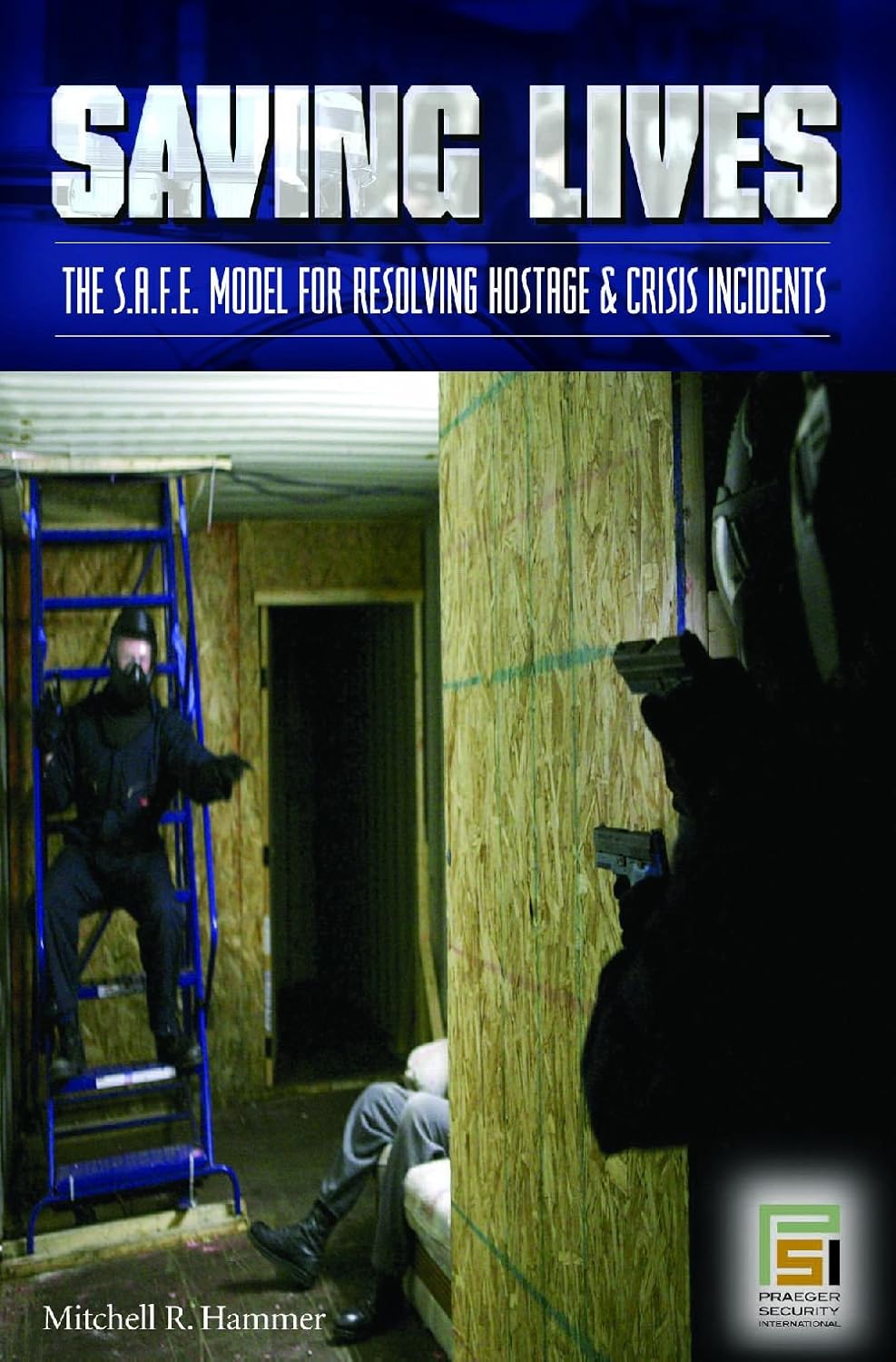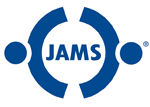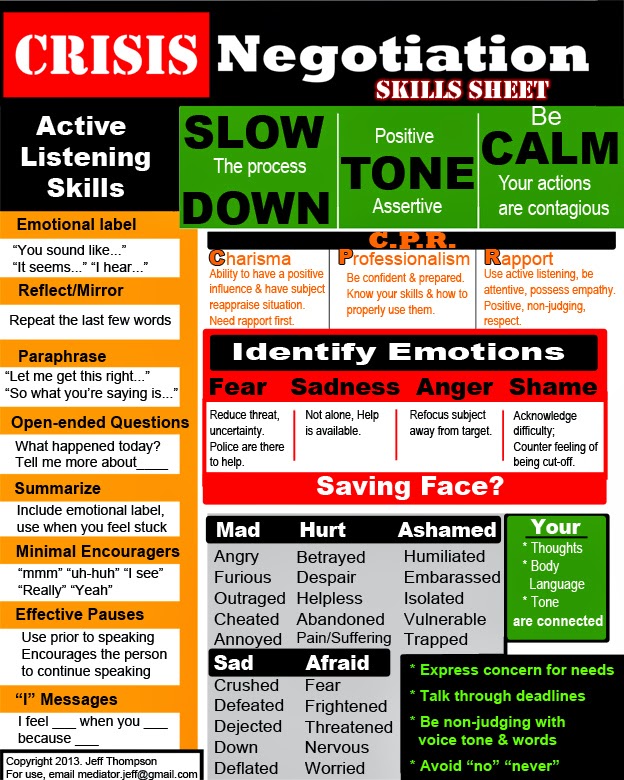What's Happening in Conflict Resolution [04.08.14]
 (From the book review)- This book is a concise modern-style textbook that allows the reader to get substantive content grounded in research and brought to life by actual examples. The stories are provided in a much more practical and beneficial manner- ones that are straight to the point while also being analytical and utilizing a new model. The end result for the non-hostage negotiator reader is coming away with a firm understanding of what makes negotiators effective in a specific setting, and if he or she chooses, ample opportunities to apply it to their work.
(From the book review)- This book is a concise modern-style textbook that allows the reader to get substantive content grounded in research and brought to life by actual examples. The stories are provided in a much more practical and beneficial manner- ones that are straight to the point while also being analytical and utilizing a new model. The end result for the non-hostage negotiator reader is coming away with a firm understanding of what makes negotiators effective in a specific setting, and if he or she chooses, ample opportunities to apply it to their work. “What is destroyed most in high tension situations is trust, and without trust, things will break down very quickly. When they do, they are replaced by increased anxiety and confusion, destroying the participants’ ability to make good, long-term decisions. It is the negotiator’s presence that keeps the trust intact.” - Michael Tsur, International High-Risk Negotiator
“What is destroyed most in high tension situations is trust, and without trust, things will break down very quickly. When they do, they are replaced by increased anxiety and confusion, destroying the participants’ ability to make good, long-term decisions. It is the negotiator’s presence that keeps the trust intact.” - Michael Tsur, International High-Risk Negotiator(excerpt) The model can be employed to resolve critical situations involving terrorist activities, international, "ethnic conflict" incidents, prison uprisings, cult confrontations, disgruntled, potentially violent employees, suicidal individuals, domestic (e.g., spousal violence) situations, barricaded individuals, and emotionally/mentally disturbed individuals…
The Dance of Criticism

Tammy Lenski- Muhammad wrote me with the question, “What amounts to criticizing?” He told me about a difficult situation with his son, with whom he’s presently living. He wrote,
I came across your “Conflict Habits” information on my computer from when I don’t recall, and after reading it (excellent information) I have a question…[personal information redacted]…he puts up the “criticizing me” defense, the “you are so self-righteous defense,” the “you are so ungrateful for our helping you defense,” and finally (and this is the real gem), the “whatever I do is your and my mother’s fault” after I’m 40 years old. If this reaches you successfully, I would appreciate your feedback, and have no problem if you publicize this inquiry, or want more information.
Criticizing is expressing disapproval of someone or judging their faults. Criticizing can play a key role in conflict when two people get into what I call “the dance of criticism.” It sounds to me like Muhammad and his son are in this very dance.
See more [HERE]
Negotiation simulation - via email!
Noam Ebner- If you are a negotiation or conflict management teacher, trainer, or instructor, you will want to check out this simulation that includes a teacher's manual.
See more [HERE]
Mediation as a Participatory Problem-Solving Process
Karen Hollett- Mediation is a process where parties come together to solve their own disputes. The parties - with the help of a mediator - are expected to find a solution to their own problem. One of the advantages of mediation is that it keeps the control over the outcome of their dispute with the parties.
There are those who believe that mediators worry too much about process...
See more [HERE]
Why Two Different Mediation Methods Can Produce The Same Results
Giuseppe Leone- With a small group of volunteer mediators, two years ago I participated in a mediation pilot project for TRO (Temporary Restraining Order) cases in Hawaii. In a nutshell, this is how it worked...
Our pilot project proved to be effective - 40%-50% of TRO cases did settle in mediation -- and two mediators (Roberta and I) had a settlement rate as high as 75%. Sure, it is debatable whether a settlement rate is a good or the only way to measure the success of a court-ordered mediation program...
See more [HERE]
MBB Receives JAMS Foundation 2014 Warren Knight Distinguished Servi...
On Friday April 4, the JAMS Foundation(http://www.jamsfoundation.org/) awarded the Sixth Annual Warren Knight Award to Mediators Beyond Borders. The award which is accompanied by a check for $25,000, recognizes the work MBB has done with local organizations, grassroots collaborations and leaders that positively impact conflict resolution culture around the world.
See more [HERE]
 Job: Outreach & Case Coordinator, Harvard Mediation Program
Job: Outreach & Case Coordinator, Harvard Mediation Program
Justify or Just-Iffy?
 Bruce A. Friedman, Esq. Joins JAMS in Santa Monica
Bruce A. Friedman, Esq. Joins JAMS in Santa Monica
 Educating the Community for 5 Years and Counting!
Educating the Community for 5 Years and Counting!
 Great Event To Support a Great Organization- NYPI
Great Event To Support a Great Organization- NYPI
About
@ADRHub Tweets
© 2025 Created by ADRhub.com - Creighton NCR.
Powered by
![]()


You need to be a member of ADRhub - Creighton NCR to add comments!
Join ADRhub - Creighton NCR